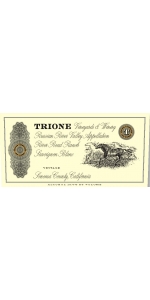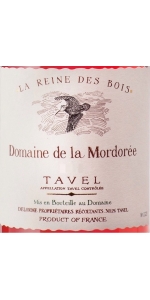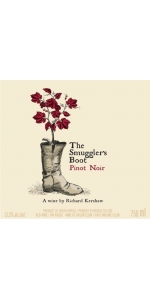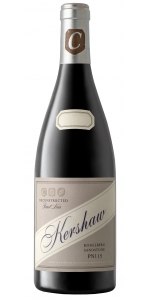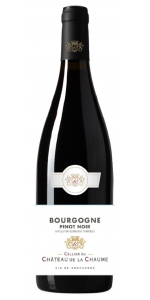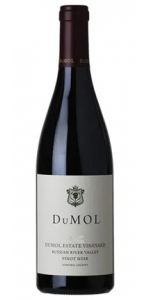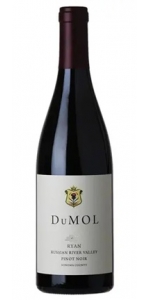Kershaw Smugglers Boot Pinot Noir 2022
6 bottles with free shipping for: $210.00
12 bottles with free shipping for: $360.00
| BUY MORE! SAVE MORE! | ||||||||||||||||||||
|
| Country: | South Africa |
| Region: | Western Cape |
| Winery: | Kershaw |
| Grape Type: | Pinot Noir |
| Vintage: | 2022 |
| Bottle Size: | 750 ml |
Kershaw Smugglers Boot Pinot Noir is made from 100% Pinot Noir made from French clones PN667, PN115 and PN113.
The name derives from the time of trade embargoes in South Africa when growers & winemakers smuggled grapevine material into the country by hiding the cuttings in Wellington boots. The Smuggler’s Boot range celebrates that ingenuity.
Attractive strawberry, savory and star anise spice linger on the nose. Juicy and sumptuous on the mid palate with breadth of flavor offset by a nimbleness of fresh acidity, friable tannins and sinuous mouthfeel, this Pinot unwraps to earthy, fennel, chocolate and a hint of incense to a long supple finish.
Handpicked grapes were first bunch sorted on a conveyor before the stems were removed and the destemmed berries sorted to remove jacks and substandard berries. After a 3-day maceration in 500kg open-topped fermenters, the uncrushed grapes began a spontaneous fermentation. A gentle pigeage program was charted and the grapes remained on skins for 10-16 days.
The free-run wine was racked to a combination of 50% French oak barrels (10% new) and 50% breathable plastic eggs with the remaining pomace basket-pressed. Malolactic then proceeded followed by a light sulphuring after which the wine was racked off Malolactic lees and returned to cleaned barrels for an 11-month maturation. No finings, simply racked and light filtration prior to bottling.
Richard Kershaw’s personal suggestions for dishes include charcuterie, its salt and fat being complemented by the delicate spicy notes and fruit; Pork loin with honey, pepper, and lemon-zest glaze; Carpaccio; duck cassoulet; ovenroasted monkfish with garlic mashed potatoes; seared tuna; wild mushroom risotto; a simple beet salad with some hazelnuts and ricotta cheese; a slice of Brie or Gorgonzola dolce.
Surrounded by mountains, the Elgin district sits in the Western Cape of South Africa. The year-round cool climate is perfect for producing grapes with rich, subtle flavors.
Focusing on apposite noble grapes, i.e. ones with the ability to produce world-class examples, our Kershaw Elgin Chardonnay, Syrah and Pinot Noir and Kershaw Deconstructed Chardonnay and Syrah are made by South Africa’s only winemaking Master of Wine, Richard Kershaw.
Richard Kershaw Wines was established in January 2012 to create clonally selected, site-specific, cool climate wines in the Elgin Valley, South Africa’s coolest wine region. Focusing on apposite noble grapes, i.e. ones with the ability to produce world-class examples, our Kershaw Elgin Chardonnay, Syrah and Pinot Noir and Kershaw Deconstructed Chardonnay and Syrah are made by South Africa’s only winemaking Master of Wine, Richard Kershaw.
Winery Philosophy: Our commitment is to make the best wines possible from the vine clones best suited to our unique terroir. Our grapes are grown in the cool climate vineyards of Elgin in the Western Cape of South Africa. We produce only a very limited number of cases of Kershaw Elgin Chardonnay and Kershaw Elgin Syrah each vintage. Our aim always is to produce some of the best wines of their style in South Africa.
Owner: Richard Kershaw MW
Date Founded: January 2012
Born and raised in the UK, Richard travelled extensively before settling in South Africa in 1999 to make wine full time. He established Richard Kershaw Wines in January 2012 to create clonally selected, site-specific, cool climate wines in the Elgin Valley, the country’s coolest wine region, choosing to focus on apposite noble grapes (ones with the ability to produce world-class examples) and now has a stable of award-winning, much in demand wines including Kershaw Elgin Chardonnay, Syrah and Pinot Noir and Kershaw Deconstructed Chardonnay and Syrah.
One of only 10 Masters of Wine who actively make their own wines and South Africa’s only winemaking Master of Wine, Richard is much in demand when not in the vineyard or cellar. A wine show judge for many prestigious competitions around the globe, he is also part of the educational panel for the Institute of Masters of Wine, lectures for the WSET (Wine & Spirit Education Trust) in South Africa, and shares the breadth of his knowledge with students and consumers via talks, tastings and blogs.
Our grapes are grown in the cool climate vineyards of Elgin in the Western Cape of South Africa. We produce a limited number of cases of Kershaw Elgin Chardonnay, Syrah and Pinot Noir each vintage under our Clonal Selection range, and site- soil- and clone- specific Elgin Chardonnay and Syrah in our Deconstructed range. We have recently introduced our GPS Series range which explores unusual sites from outside the Elgin region, and our Smuggler's Boot range in which Richard uses a variety of winemaking techniques to produce easy drinking wines. Our aim always is to produce some of the best wines of their style in South Africa.
The Elgin Valley benefits from higher altitude, ocean proximity, specific cloud cover sequencing, high cold units and a large diurnal range, similar to Southern Burgundy and the Northern Rhône, which enables the germane grapes, Chardonnay and Syrah, to show a sense of place.
Kershaw Elgin Chardonnay makes use of the lower-yielding Dijon clones, namely 76, 95 & 96 (developed at the University of Burgundy in Dijon, France), offering a restrained, mineral style focused on elegance with a white, fruit character, some oatmeal, and complexity gained from percipient wood.
Kershaw Elgin Syrah makes use of local clones 9c and 22 giving subtlety and precision built on fine tannins that educe harmony, freshness and flavours of black fruit, iodine, medicinal notes and black pepper.
Kershaw Elgin Pinot Noir makes use of French clones PN667, PN115 and PN113 giving floral attributes underscored by purity, focus and freshness framed by fine powder tannins yet cushioned by a succulent texture and flavours of black cherry, pomegranate, rose petal and raspberry.
Each Clonal Selection wine is made from 3-4 small parcels on terroir-specific plots with particular soils types. Each Deconstructed wine is made from clone specific, soil specific site in Elgin. They are all handpicked into small lugs and vinified in Elgin travelling no more than 10-15 minutes between vineyard and cellar, avoiding unnecessary crushing and premature juice oxidation. In the cellar, they are handled minimally using a gravity-fed system that avoids pumping and no products are added to the wine.
Winemaker: Richard Kershaw MW
River Road Ranch is a 115-acre jewel in the heart of the Russian River Valley AVA. Chardonnay vines thrive in well-drained soils, shrouded with fog cooled nights, ideal growing conditions. The grapes for this wine came from two blocks of twelve and fifteen-year-old vines, planted with clones #4, 95, and 2A-Wente.
Bottled poetry is the description of Trione Chardonnay. Burgundian in style of both nose and palate. Rich and inviting, this wine offers a complex mix of toasty baguette, warm melted brie; silky but with the structure demonstrating the aging potential. The wine is tasting great now but will be awesome for the next 5-7 years.
Mordoree Tavel Rose Reine des Bois is made from Grenache
Nose: Steady rose, brilliant and cristal clear.
Aromas : very complex : from flowers, white fruits and red fruits (strawberries, pomegranate, rapsberry). Slightly mentho-lated
Palate : fresh, classy, elegant, very long.
Aging capacity : 8 to 10 years.
This wine comes from a parcel planted on a pebbled soil covered with stones, whose geology is typical of the grands crus from the Rhone Valley (a base made of marine molasse from the Miocene period covered with an alpine diluvium from the Villafranchian period). 100 % destemming, cold maceration during 48 h., pneumatic pressing, fermentation at 18° C.
To pair with: roasted and or spicy chicken, duck, goose, fish soup, white meat, seafood and a lot of fishes (tuna, John Dorry, red mulet, etc...).Quite all Asian cuisine. Dishes with garlic, dishes with tomatoes.
Review:
"A blend of 60% Grenache, 20% Syrah, 10% Cinsault and 10% Clairette, the 2022 Tavel La Reine des Bois is a touch darker in hue than its stablemate, the La Dame Rousse, but it's still not among the darkest of Tavels in the glass. That's perfectly okay, as the aromas and flavors are textbook for the appellation: crushed stone, flowering garrigue, ripe cherries and mouthwatering strawberries, all capped off by refreshing citrus-zest notes on the lengthy finish. Full-bodied and full-flavored, it's one of the candidates for top Tavel this year. - Joe Czerwinski"
- Robert Parker's Wine Advocate (May 2023), 93 pts
Kershaw Smugglers Boot Pinot Noir is made from 100% Pinot Noir made from French clones PN667, PN115 and PN113.
The name derives from the time of trade embargoes in South Africa when growers & winemakers smuggled grapevine material into the country by hiding the cuttings in Wellington boots. The Smuggler’s Boot range celebrates that ingenuity.
Attractive strawberry, savory and star anise spice linger on the nose. Juicy and sumptuous on the mid palate with breadth of flavor offset by a nimbleness of fresh acidity, friable tannins and sinuous mouthfeel, this Pinot unwraps to earthy, fennel, chocolate and a hint of incense to a long supple finish.
Handpicked grapes were first bunch sorted on a conveyor before the stems were removed and the destemmed berries sorted to remove jacks and substandard berries. After a 3-day maceration in 500kg open-topped fermenters, the uncrushed grapes began a spontaneous fermentation. A gentle pigeage program was charted and the grapes remained on skins for 10-16 days.
The free-run wine was racked to a combination of 50% French oak barrels (10% new) and 50% breathable plastic eggs with the remaining pomace basket-pressed. Malolactic then proceeded followed by a light sulphuring after which the wine was racked off Malolactic lees and returned to cleaned barrels for an 11-month maturation. No finings, simply racked and light filtration prior to bottling.
Richard Kershaw’s personal suggestions for dishes include charcuterie, its salt and fat being complemented by the delicate spicy notes and fruit; Pork loin with honey, pepper, and lemon-zest glaze; Carpaccio; duck cassoulet; ovenroasted monkfish with garlic mashed potatoes; seared tuna; wild mushroom risotto; a simple beet salad with some hazelnuts and ricotta cheese; a slice of Brie or Gorgonzola dolce.
Kershaw Pinot Noir Deconstructed Kogelberg Sandstone PN115 is made from 100 percent Pinot Noir.
Only two barrels made. The inspiration for these Deconstructed Pinot Noir’s stems from my belief that the Elgin region boasts credentials that make it world-class. My mandate has been to prove that Elgin has a signature grape synonymous with the area and exhibits specific ‘terroirs’ (mesoclimates) within its demarcated boundary, reflecting regional distinctions. To fully comprehend this, it is necessary to dig deeper into the DNA that makes up our region. As such, I split Elgin into seven different sub-regions or zones whereby each zone identifies with a particular topographical or climatic nuance. Within these zones, I then selected specific vineyards and further an individual clone. This wine is from the South Western part of Elgin, in the Kogelberg biosphere. The Sandstone soils lend lightness, elegance and lift in the mid-palate, very subtle. PN115 tends to be more broad and structured but on these soils still has a lovely lift.
Tasting Notes : Light to medium cerise; intense and attractive aromas of strawberry, Bing cherry, orange peel and dark chocolate. The perfume lingers into the palate as the entry is medium-bodied, juicy, ripe and silky-textured. A pulsating acidity coated by fleshy red plums, cherry compote and tinned strawberry. Intermingled are wisps of incense, almost peat notes from an earthier wood content giving a beguiling interplay of wood and fruit. Complex with excellent concentration, the wine has a crushed velvet tannin and persistency that lingers on for many minutes.
Pair with roast duck breast with a raspberry glaze.
Argot Bastard Tongue Pinot Noir is made from 100 percent Sonoma Pinot Noir.
Inheriting an unbroken string of success, the “Bastard Tongue” arrives fully-formed and ready to impress. Always a blend from multiple Pinot Noir vineyards, this iteration of “BT” was selected from three distinct sites, each making their own unique contribution of Sonoma County terroir to the wine’s character.
Exploding forth on a tidal wave of high-toned, intense red and black fruits, this is a Pinot Noir that no stemware can contain. The palate’s profound depth is balanced by an inherent freshness, allowing the wine to crackle with brambly energy, while sustained by bass notes of underbrush, black tea, pie spice and baker’s chocolate. A formidable rendition of “Bastard Tongue”, and a deserving successor to its line.
Night harvested by hand throughout September, cluster and berry sorted by hand, de-stemmed, no crushing. 7-day cold soaks, followed by native fermentation in open-top bins. Average time on the skins, 14 days. Aging 20 months in French oak, 100% new. Never racked prior to bottling. Bottled unfined, unfiltered.
Very versatile for pairing. Goes well with grilled meat, vegetable, fish, poultry and cheese.
Review:
"The 2022 'Bastard Tongue' Pinot Noir from Argot is utterly mind-blowing. It immediately draws you in with its seductive aromatic of fresh black raspberries, wild strawberries and even a touch of blueberry all woven together with sweet spices, cinnamon, crushed violets and earthy undertones. On the palate, the wine is both rich and graceful, with a lively acidity that elevates the sweet red fruit notes of red currant and black raspberries. Fine, polished tannins provide a round, silky texture that leads into a supple finish that lingers with sweet berries and sweet spices. This Pinot Noir offers a beautiful balance of elegance and complexity, drinking beautifully now, with a depth that promises further enjoyment. This is one of the most delicious bottles of Pinot Noir I can recall." - 98 Points, International Wine Report
Chaume Bourgogne Rouge Pinot Noir 2022 is made from 100% Pinot Noir.Color: bright ruby red
Bouquet: blackcurrant, raspberry and hints of blackberry
Bouche / Palate: smooth attack, balanced, fine tannins and smooth finish
Butterflied lamb, char-grilled steak, venison. Dishes like cassoulet or duck with olives if they're more rustic. Roast goose.
Our DuMOL Estate Vineyard is our original high-density vine planting from 2004. It’s organically farmed without irrigation – these vines work hard each season. We make a strict selection for this bottling, one of our flagship wines, so that only three acres of its nine total comprise this bottling; the balance forms the core of Highland Divide. This is the best of the best. The high vine density and exclusively Calera Selection produce a wine with a significant level of both tannin and acidity. This structure is buffered by a deep core of fruit extract, the product of the ripe grape skins themselves, and the essence of the wine. Each vintage can age for many years, and it gradually deepens into a woodsy, truffley, and enveloping wine with grand scale complexity while never relinquishing its inherent brightness.
The wine’s aromas and flavors are akin to black cherry, boysenberry, hibiscus, anise, moss, and juniper. The palate is simultaneously bright yet dark, with mineral drive, violet floral lift, and bay laurel freshness. Tannins and acidity fuse to lengthen these flavors, and the wine finishes with dried herbs and orange zest lift. Great aging potential. Drink between 2025 and 2034 and decant for an hour in its youth to hasten the development.
Review:
Medium to deep ruby-purple in color, the 2022 Pinot Noir Estate Vineyard comes barreling out with bold notes of fresh blackberries and black cherries opening out to suggestions of anise, garrigue, and lilacs. The medium-bodied palate reveals impactful black berry flavors with wonderfully spicy accents supported by grainy tannins and great tension, finishing long with a minerally lift. This is an all Calera vineyard. (LPB)
-The Wine Independent 97 Points
The wine’s aromas and flavors are akin to red and black cherry, briary wild berries, pomegranate, dried rose, pepper and licorice. Significant umami notes develop with time, and it offers a chewy core of fruit on a lovely expanding palate. Despite its obvious richness, there’s polish and definition to the flavors and structure. The wine turns spicy and savory on its long finish. Drink between late-2024 and 2032.
We’ve produced Ryan Pinot Noir since 2002, and it has always focused upon the mature dry-farmed Dutton-Widdoes Vineyard, deep in the heart of Green Valley. Widdoes produces a wild berry, truffley style of rich, dark Pinot that offers substantial hidden complexity which is revealed over time. In recent years we’ve balanced this power style with a block of vibrant, elegant, and red-fruited Pinot from Dutton-Jentoft, located at higher elevation closer to the coast. Both vineyards are sensitively farmed by our long-time partners, the multi-generational Dutton Family. Traditionally our most fruit-filled and approachable Pinot bottling, history shows that the wine ages gracefully for a decade-plus, revealing all its quintessential Green Valley Pinot beauty as it develops in bottle.
Review:
From the oldest vines of the estate, the 2022 Pinot Noir DuMOL Ryan is fantastic on the nose, with notes of fresh leather, Asian spices, sandalwood, and fresh cherries. The palate is vibrant and salty with green valley character, revealing finely coiled tannins, mouthwatering acidity, a saline mineral flourish, and a long finish. This one of the most compelling wines in the vintage for me, and it’s going to age gracefully over the next 15-20 years.
-Jeb Dunnuck 98 Points
- back
Ruffino Alauda Toscana IGT is made from 40% Cabernet Franc, 35% Merlot, 25% Colorino.
An elegant, full-bodied wine, Alauda is a harmonious sum of its parts. Rich with varietal flavors of plum and cherry from the Merlot and layered with ripe berry flavors from the Cabernet Franc, and unique balsamic and dark chocolate notes from the Colorino. The extended oak aging process integrates the blend while providing tertiary flavors of sweet spice and soft, elegant tannins for a lingering finish. This wine will age gracefully for decades.
DAOU Vineyards Soul of a Lion is made from 80% Cabernet Sauvignon, 13% Cabernet Franc, 7% Petit Verdot .
The 2020 vintage presents an alluring profusion of black cherry, mulberry and Oregon blackberry aromas with notes of leather, cigar box and dark chocolate. Hints of desert sage and crème de menthe accent the rich fruit. The palate is silky and voluptuous, delivering loads of currant, cassis, black raspberry and ripe cherry. Notes of fig and baking spice are underscored by earthy tones of dates and truffle. Mature, ripe tannins yield a weighty, velvety texture integrated with a limestone minerality and subtle oak. A lengthy finish leaves lingering impressions of blackberry, plum and espresso with a touch of white pepper. A wine of immense staying power that will evolve favorably for many years to come.
Review:
Impressively dark in the glass, this bottling pairs intense purple fruit and flower on this nose with more roasted, umami-laden aromas. The elegant palate is a master class in tannin management, proving firm in structure yet soft in mouthfeel. Flavors of blackberry jam, cocoa, walnut and cracked pepper ride a lingering acidity into the finish.
-Wine Enthusiast 97 Points



